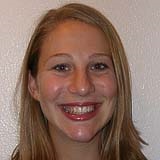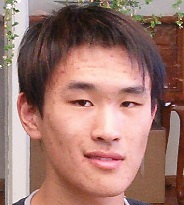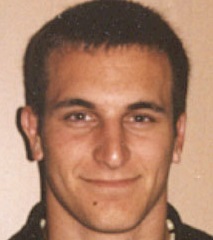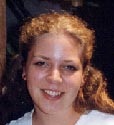Since my exams ended three weeks ago, June has technically been a month of vacation for me, meaning that I have spent a lot of time reflecting on my year abroad as I tie up loose ends and say goodbye to friends. Initially, I thought that writing up my reflections on my ten months in France would be relatively simple, because I already had so many thoughts in my head. However, now that I sit down, in one of my favorite cafés in the centre ville of Lyon, to write something concrete, I find that it is a much harder process than I thought. I was recently discussing studying abroad with my program director, Christine, and the fact that I don’t really feel like I am studying abroad anymore. Lyon has become much more than a destination to explore and a place to study. It is where I will look back when I consider the different places I have lived and called home. I am finding it difficult to write my reflections on my EAP experience because I have grown out of the EAP program and have touched on something much more complicated.
I can’t really speak for others, we all react uniquely to the situations we are placed in, but I will say that I now distinguish two kinds of study abroad students in my head. For some, France has remained a foreign country, a place to visit, and an opportunity to speak a different language from time to time. For others, France has become another home where the culture is now familiar, where the language is an ongoing communication with others, and where the complexities of the country have become apparent. It is perhaps easier for those in the first group to enjoy France and then to go back to California, which they never really left in the first place, and discuss their experience abroad. I count myself among the second group, which makes reflecting on my ten months in this country very difficult. It is as hard as when people ask me what my life was like in England or when non-Californians ask me to describe what California is like. How to describe something that is filled with a million experiences, where each town has a different feel and where living there is just what you do.
I feel very divided as I get ready to leave Lyon. On one hand, I feel connected to this place and my friends here, but on the other, I feel that I have only just scratched the surface. My level in French has improved and has surpassed my expectations, yet I know I am not fluent and could never be considered French. (After nine years in California, people still know from my voice and my mannerisms that I’m not Californian!) It would be nice to stay a second year; maybe then I would feel like I had learned enough! Studying abroad has given me a travel bug and a desire to learn more about subjects that interest me. There seems to be a never-ending list of things to discover and learn about! In that respect, I am not too sad to finish this EAP year abroad, because I know this will not be my last time in a different country or my last challenging, but rewarding experience.
Academically, this year has been extremely worthwhile, but not in terms of courses and grades. Since there is always the possibility that my courses won’t transfer (I won’t know until I get back and petition them), I quickly stopped feeling unnecessarily stressed about my degree in California. I took more units than was required, I made sure to take courses that reflected the requirements of the UCSD political science department, and I stayed in contact with my academic advisers. Otherwise, I just enjoyed learning about subjects that interested me and concentrated on improving my French. In terms of grades, the French system is very different from the American. All students are graded in relation to each other, meaning that usually getting the “moyen” or average is considered a good grade and anything higher is fantastic. Class grades in general are much more uncertain as they usually depend on one test graded directly by the professor. Usually I focus almost too much on achieving the best grade I can, but this year that mentality was just not possible. Instead, I concentrated on my own sense of progress and success. I tried to improve my writing and communication skills in French to minimize the difference between me and the French students. By the end of my courses I had no idea in terms of the grades I would receive, but I personally knew that I had done my best. During my last few exams of the year I forgot that I was an international student and just wrote as feverishly as the other students to get my ideas down in the allotted time. There is no doubt in my mind that I prefer the Californian system, but I know that I can hold my own in the French academic climate. I’m just a little worried now that my English has declined somewhat… So far writing this reflection has been a bit challenging, as I keep misspelling words according to the French spelling and want to use French expressions. For example: “I am not arriving at expressing myself clearly” is what I would write if I could use French!
As you know, I took advantage of my time in Europe by travelling a great deal, particularly to visit my family and friends in England. In that respect, this year has been a time of immense personal growth for me, as I had always been nervous about travelling to unknown places. Now if I want to see a place or meet up with someone in a different city or country, I do the research, hop on the appropriate transport, and get myself there! I find that I am much more confident when dealing with challenging situations and can distinguish between spilled milk and serious issues when getting frustrated or worried. I also value my loved ones a great deal. I always have appreciated and loved my family and close friends, but now I can see that distances are only physical barriers, they do not have to separate us from those we love if we are willing to put the time and effort into staying in contact. Visiting my grandparents and other relatives in England was a wonderful experience, as I was able to reconnect with them as an adult and on an individual basis. It was also lovely to see my mum after nine months and spend time with her in Lyon, where I have made a niche for myself. Travelling also made me realize how connected I have become to France, as I was always happy to come home to my apartment here. What a strange realization it was when I discovered that I felt more at ease being surrounded by French speakers in Lyon than by all the many English-speaking people in Greece and even in England!
I didn’t think it would ever happen, but recently I have begun to think in French. I pick up the telephone and have to stop myself from saying a French phrase to an Anglo friend. When thinking during a conversation, I also construct sentences in French without realizing and then have to scramble them into English before speaking to a non-French speaker. It was very satisfying on my recent trip to Nice to talk to people and see them realize that I do speak French. A man at the train station helpfully told us why the train was late and, remarking that we’d been talking in English, looked apologetic and asked if we could understand French. I said, “oui” and then ended up chatting with him for half hour about the train strikes, the government of Monaco, and the laws that regulate work hours in France. He interrupted me at one point with a rather surprised look on his face and said, “so, you really do speak French, your level is very good!” I think that may be one of the best compliments to get after the slow, halting process it took for me to really improve my French. And, of course, I still have those days when I get up in the morning and can’t seem to put a simple phrase together or when I enter a café and am left searching for the words to order something. If future study abroad students ever ask me about learning a foreign language, I will tell them that it is a hard and sometimes discouraging process, but in the end, if you put in the effort, you will improve and it will be worth all the work. Now I just need to learn Spanish… I’m enrolled in a class for beginners next quarter, let’s hope my French will help me a bit!
Looking back, the beginning of the year seems very far away now, yet I think my first month in France was the most important. Searching for housing was difficult and months later the ideal housing situation I ended up in has not dulled my memory of what a tough process it was. Being thrown into Lyon and living out of a suitcase while frantically searching through online ads for roommates was terrifying to say the least. However, I was surprised to find that I was extremely happy to be in Lyon despite the challenges of the housing search. My close friend Becky and I would say that everything would be perfect if only we had a place to live! And by some miraculous turn of events I ended up finding exactly what I was looking for: a single, furnished room in “collocation” with a French girl and with all the utilities included. I moved in immediately, saying goodbye to my friends at the residence we were staying at, and felt settled-in right away. After two weeks of sleeping on hard beds with unfamiliar bedding, it was incredible to go to sleep for the first time in my own bed. I think that was the best night of sleep I have had in Lyon! The initial elation of finding my apartment never really left me, mainly because as I got to know my roommate Anne more, I felt even more at home. It has been great to find an ideal living situation and get a close friend out of it! What’s more, throughout the year she corrected my French and even looked over my assignments to catch grammar mistakes!
Before coming to Lyon I was terrified about housing and it was the main aspect of studying abroad that I agonized over. If future study abroad students ever want advice, I would say that yes, finding housing is difficult and not fun. However, it is a fantastic way to get to know the city you have arrived in. You are instantly forced to take public transportation, get comfortable in internet cafés, communicate with people, and learn about banking, laws, and culture. For the most part, people are helpful when talking to foreign students, which makes the housing search a bit easier for internationals. If you don’t understand right away due to the language barrier or because you just don’t know what to expect with housing, it is absolutely fine to ask questions and seem confused. The people you talk to know that you are struggling with an unfamiliar language and country. Plus, being an international student is interesting, which makes you more appealing as a potential roommate. In the end, everyone on my program found housing that was ideal or, if it wasn’t ideal, they changed it.
Now that I am at the end of my year abroad I can say that it has been an extremely positive experience and a wonderful opportunity. I heard many people say that studying abroad was an incredible part of their time as an undergraduate. I definitely agree and hope that this is just my first experience abroad, not my only one. I am nervous to come back to California and sad to leave Lyon and my Lyonnais friends behind. However, I am beginning to feel ready for the next chapter, which perhaps shows that I have evolved as I haven’t felt prepared for that until recently!




















